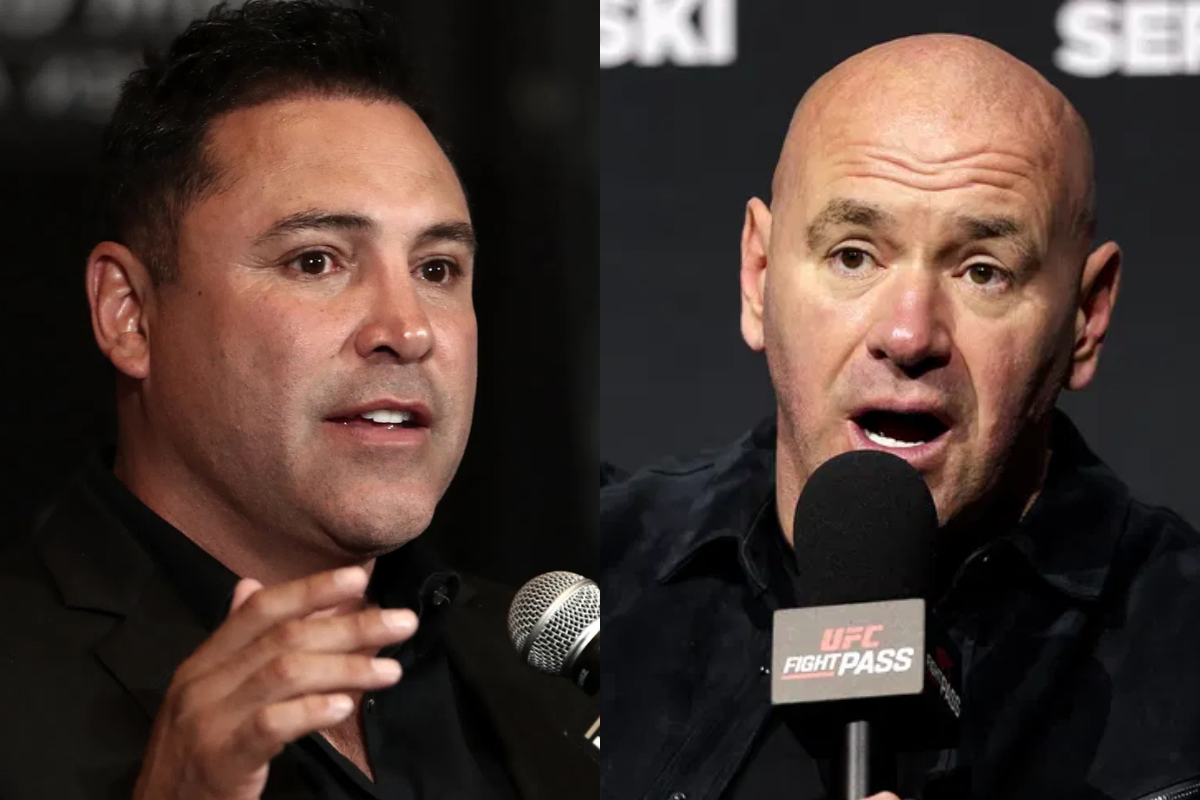
Imago
Credits: Imago

Imago
Credits: Imago

Imago
Credits: Imago

Imago
Credits: Imago
The TKO Group, owner of UFC and WWE, has quietly begun lobbying Congress to tweak the Ali Act. As ESPN reports, “The TKO Group that owns UFC and WWE has asked for amendment changes to the Muhammad Ali Act, a federal law designed to protect boxers from exploitation.” A memo from the Association of Boxing Commissions, quoted by BoxingScene, noted: “Presently the UFC/TKO is requesting an amendment change to the Muhammad Ali Act. The board of directors is working with them to make sure the ABC is still part of the federal law.”
Watch What’s Trending Now!
Then came the gloves‑off moment: Oscar De La Hoya absolutely unleashed in Clapback Thursday. The Golden Boy promoter didn’t mince words when he declared, “The writing is on the wall. Fighters beware… The Ali Act was put into place back in 2000 to protect fighters by assuring them financial transparency, contract fairness, protecting them from other conflicts of interests… aka, it protects fighters from being taken advantage of.”
And when it came to Dana White, De La Hoya cut even deeper. In the same tirade, he said, “Look, Dana White is always flaunting his relationship with President Donald Trump and is very clearly banking on this getting pushed through using that connection.” The former world champion connected the dots back to UFC’s history of antitrust litigation, reminding fans: “The UFC was sued by their own fighters for this unethical shit. They recently settled on a $375 million antitrust lawsuit over claims they used illegal practices to suppress fighters’ wages and rival promoters.”
View this post on Instagram
Driving the point home, De La Hoya painted a grim picture of fighter welfare under TKO’s model: “This new league TKO is planning on paying fighters whatever they want, which will likely be pennies on the dollar based on the existing UFC model—the same model that leaves their fighters in broken bodies and empty bank accounts.” He even cited one tragic case: “The latest heartbreaking example is former UFC fighter Ben Asprin, who needed a double lung transplant and couldn’t afford it. So he publicly had to ask for help.”
At bottom, De La Hoya frames this potential legislative shift not as modernization, but as a red flag: boxers should ask why. Is this truly about creating more opportunities—or about consolidating power and diluting accountability? For the man who’s promoted fights for 24 years, the message is unwavering: “I’ve never wanted one change in the Ali Act because I’m about fairness and helping fighters… There is zero reason to want to change the Muhammad Ali Act whatsoever.”
What exactly is the Muhammad Ali act?
The Muhammad Ali Boxing Reform Act, first enacted in 2000, was a landmark federal statute designed to protect fighters from exploitative practices like non‑transparent contracts, ranking manipulation, and coercive exclusive deals. Critics at the time—including Ali himself and major boxing publications—called out “dishonest ways” of corrupt promoters and demanded legislative action to restore integrity to the sport.
Decades later, the Act’s enforcement still draws scrutiny. Prominent combat sports figures warn that TKO’s proposed “Ali Revival Act” may do more harm than good. Matchroom Boxing boss Eddie Hearn has been blunt: “I don’t think we need more power in the promoter’s hands… that act is nearly always there to protect the fighter… to try and change that act or get it slung out isn’t a good look from a fighter’s perspective.” Hearn argues that the proposed updates—under the guise of modernization—risk consolidating control in a UFC-style model and sidelining historic sanctioning bodies like the WBC, WBA, IBF, and WBO.
Combat sports lawyer Erik Magraken points out concerning procedural flaws: “The Athletes’ Voice Committee never saw it… why wouldn’t you talk to athletes before changing the Ali Act?” He tells BoxingScene many state commissions were similarly left out, despite the Ali Act’s purpose being fighter protection.
Additionally, recent analysis has highlighted how the Ali Act helped reduce opportunities for match-fixing by introducing transparency and regulatory oversight—key antidotes to the sport’s long history of corruption.
Supporters of the new legislation do cite fighter‑friendly provisions: a minimum $150 per round, mandatory $25,000 injury coverage, stronger anti-doping standards, and expanded health benefits. The bill is backed by the Association of Boxing Commissions and Lonnie Ali, Muhammad Ali’s widow, who view it as a potential infusion of competition and modernization in U.S. boxing.

